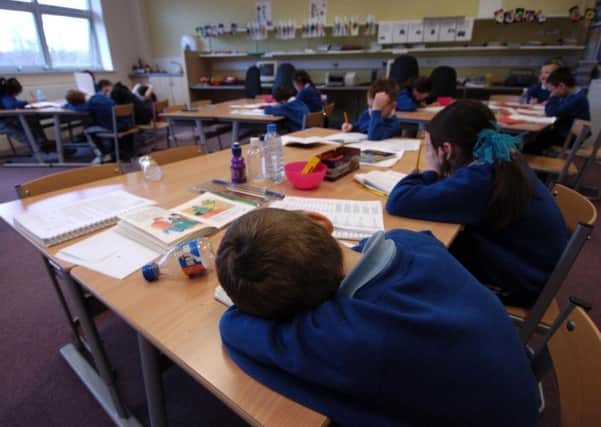City schoolkids aren't getting enough sleep, new data suggests


A shock new report suggests – on average – they are having three hours less sleep than the recommended 11 hours for children.
Parents surveyed also admitted to letting children stay up late as a reward for better behaviour, with the standard bedtime on a school night being 10.37pm, says Travelodge. And as a result, more than three quarters of children are finding it difficult to concentrate at school on a regular basis.
Advertisement
Hide AdAdvertisement
Hide AdLuke Addison, 28, of Riverside Cottage Nursery said: “There is definitely a correlation between getting enough sleep and learning at school.
“However I do feel children need to be outdoors and learning and not just sat in a classroom all day.
“A total of 80 per cent of the time at our nursery the children are outdoors learning things first hand. I don’t believe going to sleep early as a punishment or staying up late as a reward a good idea at all and shouldn’t be encouraged. Children need their sleep.”
The Travelodge study surveyed 1,500 children aged between eight and 15 years old. A total of 45 per cent of participants said they don’t follow a regular bedtime routine.
Advertisement
Hide AdAdvertisement
Hide AdThe research also revealed that seven out of ten children in Edinburgh are going to bed with at least one smart device such as a mobile phone or tablet. Experts say it is detrimental to the quality of sleep children are getting as electronic lights can delay the release of melatonin, disrupting the sleep cycle and making it harder to fall asleep.
A total of 33 per cent of sneaky children in Edinburgh also admitted that they regularly pretend to go to sleep and wake up after their parents have gone to bed and play with their smart devices.
Mr Addison said: “Children process a lot of their learning during the day at night. Technology brings a lot of issues at bedtime, with more children now having their own phone or tablet compared to a decade ago. The light from those devices and the TV is going to have an impact on their ability to sleep.
“Children should have cool down time at the end of the day away from screens so they can get ready for bed and they can get the sleep they need in order to be motivated for the following day.”
Advertisement
Hide AdAdvertisement
Hide AdDr Pat Spungin, child psychologist and family life specialist, believes parents should be concerned about the effects of sleep deprivation on their children.
She added: “There is very little information available to parents about the importance of a good night’s sleep. A lack of sleep has a negative effect on a child’s mood, concentration and attention. Research also shows that children who are sleep deprived do less well academically, show more problem behaviour and have lower levels of social skills.”